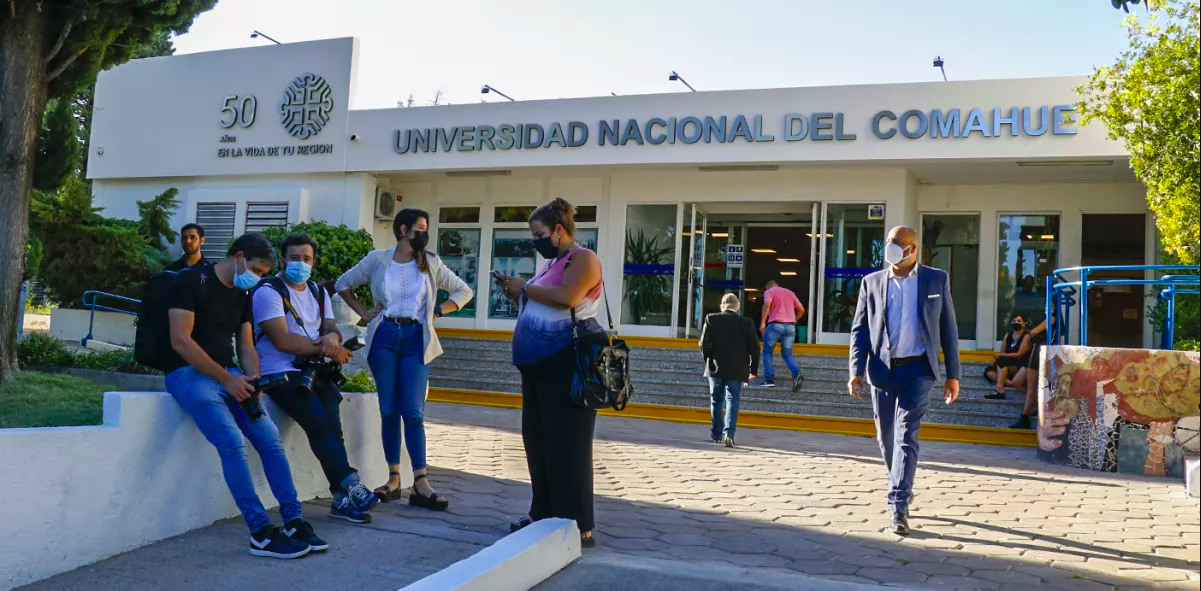
Published 04/09/2024 15:37 | Edited 04/09/2024 16:17
Argentine universities are facing an unprecedented financial crisis due to government defunding, which is leading several institutions into a state of default on payments for basic operational services, such as cleaning, electricity and gas. With the same budget as the previous year and inflation exceeding 270%, universities are finding themselves unable to cover their expenses, threatening to halt their operations in the second half of this year.
The phenomenon reported by the newspaper Page 12, occurred along similar lines during the Bolsonaro Government with federal universities. Far-right governments target public universities for their dismantling policies, as they concentrate intellectuals who criticize ultra-liberal government policies. In Bolsonaro’s case, there was a deliberate policy of disqualifying the university and scientific environment, spreading disinformation to turn public opinion against these institutions. As soon as he took office, the Lula Government defunded the National Fund for the Development of Science and Technology (FNDCT), which made universities breathe again.
The National University of Comahue (UNCo) has announced that due to a lack of funds, it will be unable to pay for essential operating services in March. Other institutions are also facing similar difficulties, with the exponential increase in electricity costs and other basic expenses. Although the inflation of these services is unaffordable (270%), the universities’ budget remains stretched within the limits of the previous year.
Deans and university authorities warn that if the situation does not improve, the start of the second academic semester could be at risk, leaving millions of students and staff unsure of what the future holds for them. The paralysis could leave 300,000 teaching and non-teaching workers on the streets and 2.5 million students in limbo, with no chance of continuing their careers. In response to this looming crisis, lawmakers are discussing an emergency bill to ensure the survival of universities during this turbulent time.
Beatriz Gentile, dean of UNCo, highlighted the seriousness of the situation, emphasizing that the lack of resources compromises not only the universities’ daily operations, but also their long-term future. She highlighted that severe cuts to essential services are already being made, and that negotiations with suppliers to find viable solutions are ongoing.
The National University of Quilmes recorded a similar situation last week, which was communicated through its social networks. With equivalent consumption, electricity expenditure in the first two months of 2023 was 4,827,120 pesos, while in the first two months of this year the value reached 20,125,103 pesos. From the #universidadenemergencia, he concretely disclosed the situation he faces both to his community and to the rest of society.
In the same vein as what Gentile and UNQ mention, other institutions are already rationalizing the use of toilet paper, such as the National University of Rosário. From UBA (University of Buenos Aires), they warned that the activities of university hospitals are already at serious risk of interruption, and in many cases patients will be cared for without social assistance. There are also cases in which scholarship programs had to be cut for needy students, as well as the suspension of research and extension activities.
Furthermore, universities are seeking alternative forms of financing and mobilizing the academic community and society in general to face this crisis. Marches and protests are being organized to draw attention to the precarious situation of higher education institutions and demand government action to resolve the problem.
Meanwhile, teaching unions plan a 48-hour strike to highlight not only the lack of funding for operational expenses, but also the inadequacy of salary increases offered by the government, which do not keep pace with current inflation.
Doubling down, the Ministry of Education canceled the sending of resources to the Regional Center for Memory and Human Rights at UNLP Espacio exESMA because it was considered an “ideological indoctrination center”, where careers such as sports journalism and other arts courses are pursued.
Despite the challenges faced, Argentine universities continue to play a crucial role in society, providing quality responses to protect the population, even in the midst of a financial crisis. Their contributions, both during the Covid-19 pandemic and in other emergencies, demonstrate the importance of protecting and adequately financing these institutions vital to the country’s development.
The National University of the Southern Chaco was one of those that provided important responses to society when, in the face of the dengue outbreak, it increased the production of repellents by 4,000 units per day to sell them at affordable and free prices, depending on the case. A role in line with that played by others during the Covid pandemic, by creating diagnostic centers and developing indigenous kits due to the impossibility of importing them.
Source: vermelho.org.br

